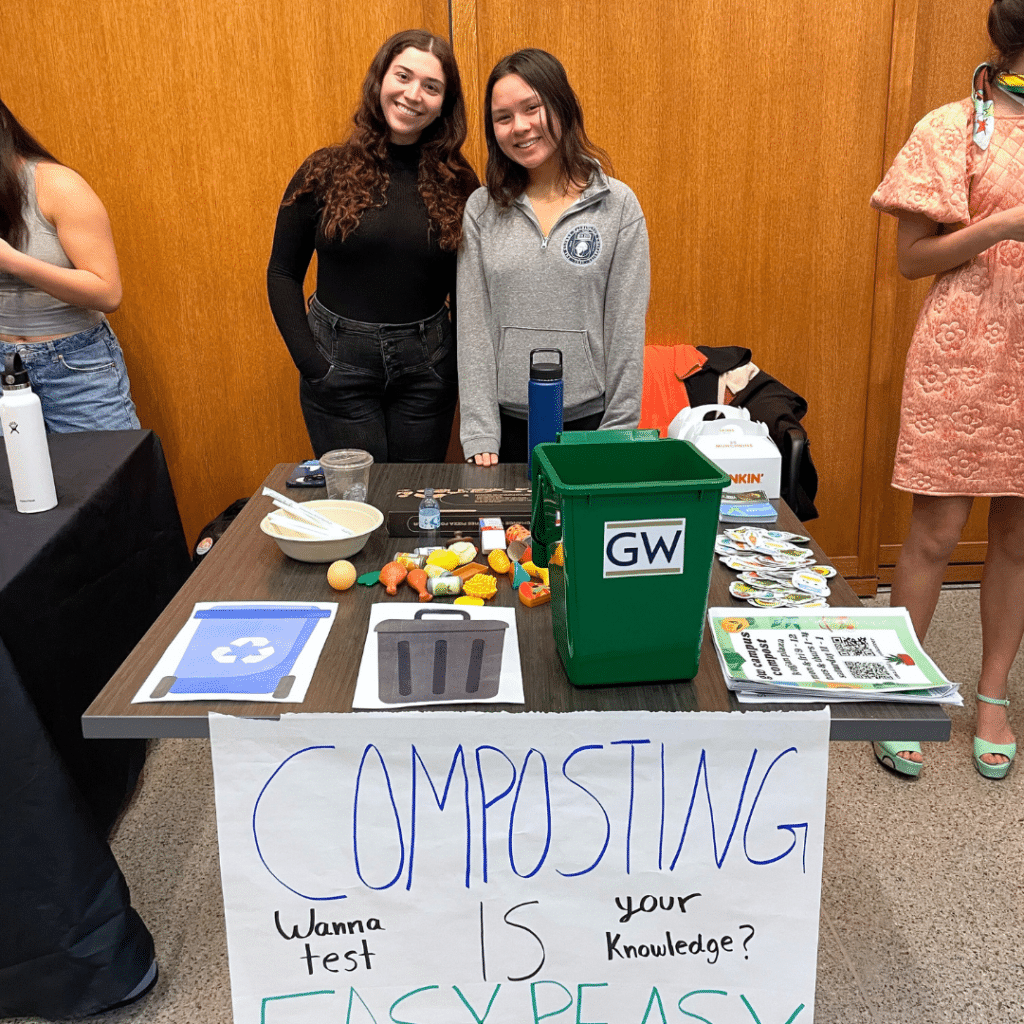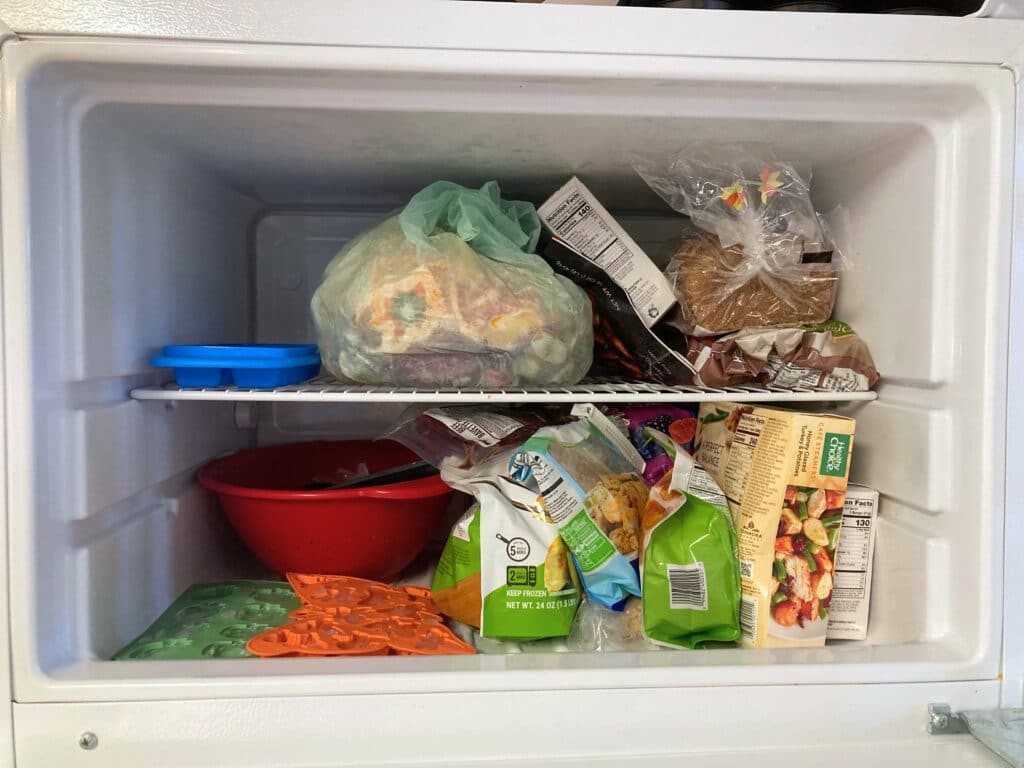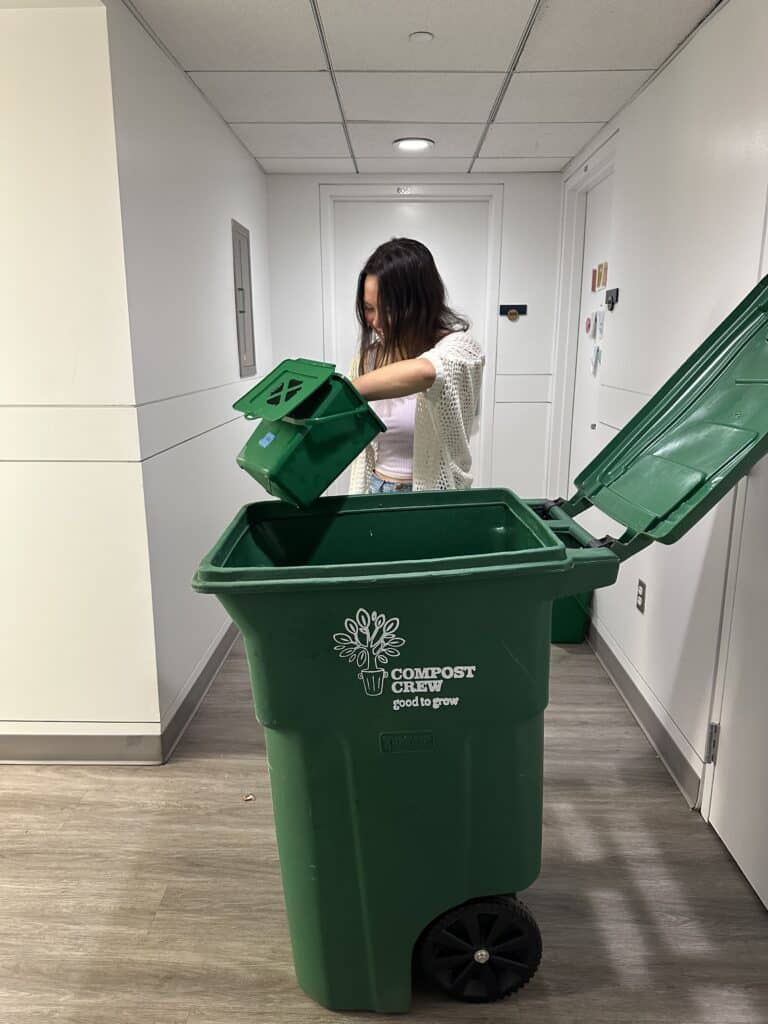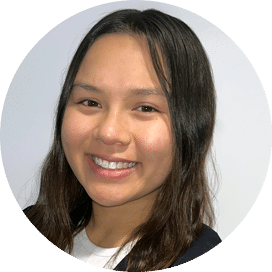
Meeting Communities Where They Are – The Importance of Community-Based Solutions
By Caylee Chan, Green 2.0 Fellow
Caylee Chan is a junior at The George Washington University double majoring in Public Health and Environmental & Sustainability Science with a minor in Geographic Information Systems. She also works as a GW Sustainability Research Fellow to increase composting access and education on campus. To mark the end of her fellowship with Green 2.0, she discusses her efforts to make composting more widespread on campus while highlighting the need for community-based solutions.
If you do a quick Google search for ways to live more sustainably, composting is one you’ll probably land on. Composting is an effective way to minimize the amount of food waste sent to landfills, reduce emissions, and incorporate sustainable practices into your lifestyle.
But simply telling people to compost likely won’t result in more “composters.” Achieving sustainable waste management solutions like composting requires implementation efforts to be tailored to community needs.
The George Washington University (GW) has a composting system in place. Though, in my opinion, it falls short of being accessible to all students. Composting at GW requires students to do the following:
- Buy compostable bags or a small compost bin.
- Properly compost food waste and other compostable materials.
- Store their compost in their freezer or compost bin.
- Drop off their compost at Kogan Plaza (the compost drop-off location) during a collection time.
While I’ve made this system work for me, a few aspects make it inaccessible to all students. One main barrier is many students don’t know what can and can’t be composted. This lack of education prevents students from even considering composting. Additionally, it’s important to note that not everyone can afford the materials required for composting, like compostable bags or a compost bin.
Another issue unique to composting on a university campus is students’ limited freezer space to store their compost. Many students live with multiple roommates and have one freezer to share, and freshmen only have a tiny freezer attached to a micro-fridge.

As someone who’s composted my entire life, I want to help introduce others to composting while being cognizant of the different barriers preventing them from composting. That’s why I chose to focus on increasing compost accessibility and education as a GW Sustainability Research Fellow.
To start, my team and I conducted focus groups to identify what specific barriers students face in terms of composting. We found that many students don’t know how to compost, don’t have a place to store their compost, and are unable to bring their compost to Kogan Plaza for collection.
With these barriers in mind, we developed a composting pilot program in the 1959 E St Residence Hall. We acquired several countertop compost bins from the Office of Sustainability to distribute to residents and also made posters detailing what is and isn’t compostable. Residents were then instructed to leave their compost bins outside of their doors by 12 PM on Mondays and Fridays.

Then, on Mondays and Fridays, someone from our team brings around a large compost bin to each of the rooms, empties the countertop compost bin into the large compost bin, and then leaves the emptied compost bin back outside of the resident’s door.
While this pilot program focuses on increasing compost accessibility, our other efforts focus on increasing compost education. We’ve partnered with various student organizations at different on-campus events to run a compost quiz. For the quiz, students choose from different food and food-related items and sort them into either compost, trash, or recycling.
Additionally, my team members are working with GW New Student Orientation to film modules on composting, recycling, and other green initiatives at GW that all incoming freshmen will watch.
While it’s easy to just tell someone to start composting, it requires more work to set them up for success. We can’t simply go around telling people to change without providing them with the means to do so. What we’ve learned is that community-level change requires community-based solutions.

Connect with Caylee on LinkedIn to keep in touch with her work.
